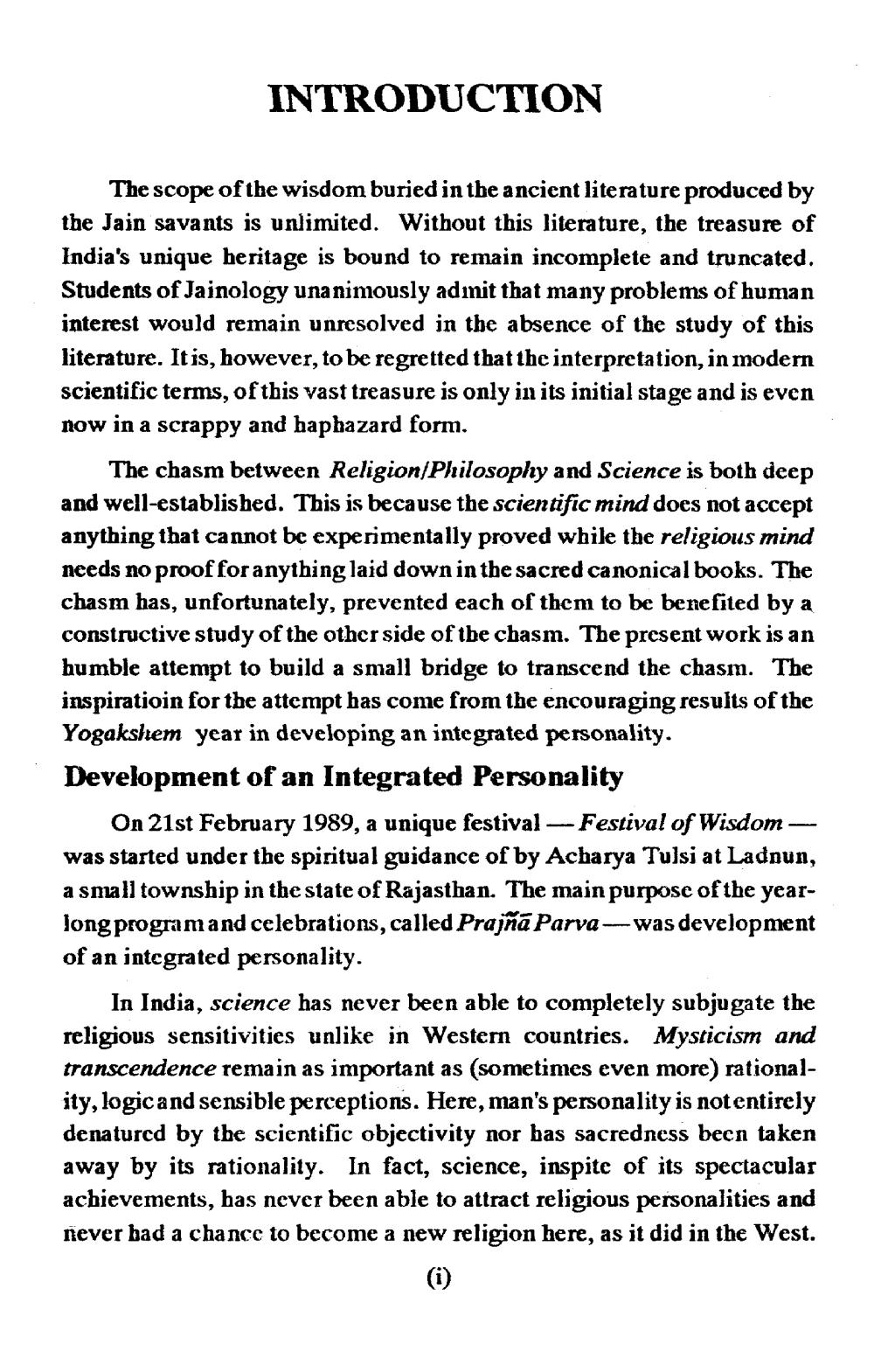________________
INTRODUCTION
The scope of the wisdom buried in the ancient literature produced by the Jain savants is unlimited. Without this literature, the treasure of India's unique heritage is bound to remain incomplete and truncated. Students of Jainology unanimously admit that many problems of human interest would remain unresolved in the absence of the study of this literature. It is, however, to be regretted that the interpretation, in modern scientific terms, of this vast treasure is only in its initial stage and is even now in a scrappy and haphazard form.
The chasm between Religion/Philosophy and Science is both deep and well-established. This is because the scientific mind does not accept anything that cannot be experimentally proved while the religious mind needs no proof for anything laid down in the sacred canonical books. The chasm has, unfortunately, prevented each of them to be benefited by a constructive study of the other side of the chasm. The present work is an humble attempt to build a small bridge to transcend the chasm. The inspiratioin for the attempt has come from the encouraging results of the Yogakshem year in developing an integrated personality. Development of an Integrated Personality
On 21st February 1989, a unique festival - Festival of Wisdom - was started under the spiritual guidance of by Acharya Tulsi at Ladnun, a small township in the state of Rajasthan. The main purpose of the yearlong program and celebrations, called Prajna Parva--was development of an integrated personality.
In India, science has never been able to completely subjugate the religious sensitivities unlike in Western countries. Mysticism and transcendence remain as important as (sometimes even more) rationality, logic and sensible perceptions. Here, man's personality is not entirely denatured by the scientific objectivity nor bas sacredness been taken away by its rationality. In fact, science, inspite of its spectacular achievements, has never been able to attract religious personalities and never bad a chance to become a new religion here, as it did in the West.




